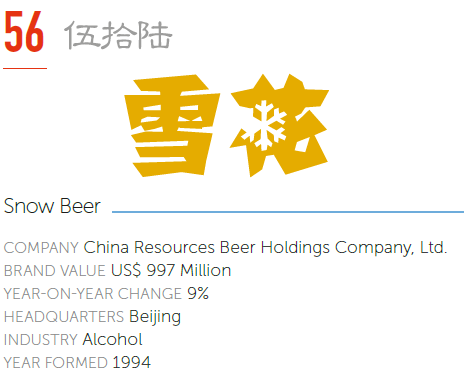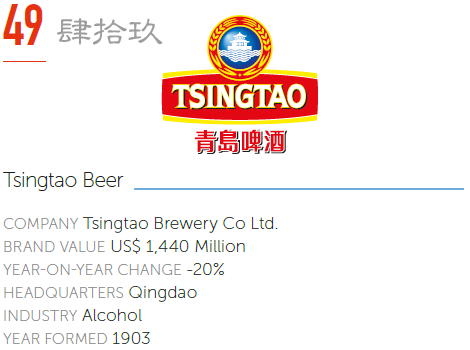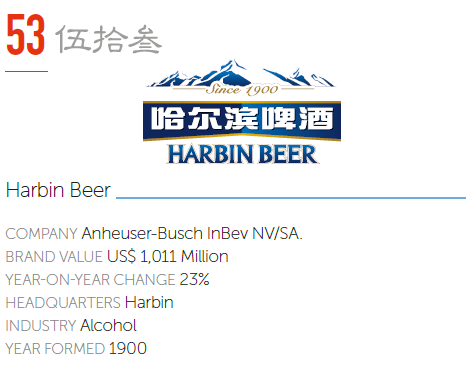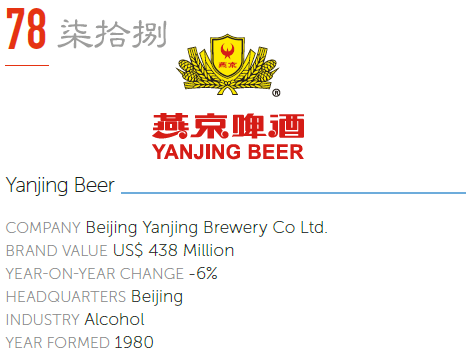Millward Brown and WPP have released the 6th annual BrandZ Top 100 Most Valuable Chinese Brands ranking and report. There are four main Chinese beer brands in the chart this year. Unfortunately, their positions decreased year-on-year.
Beer consumption grew at a weak pace, at least for the mass product, probably impacted by the slowdown in GDP growth and even rainy weather. Although the Internet grew as a beer sales channel, the beer market remained relatively regional and fragmented.
At the same time, strong demand for premium brands continued, reflecting the broader consumer shift to quality. As Chinese brands added premium offerings gains, depressed oil prices also helped enhance airline profitability. Despite these improvements airlines continued to score low in RepZ, the BrandZ™ measurement of corporate reputation.

Snow Beer introduced more premium variations. Although not well known outside of China, Snow Beer leads the world in total consumption. Tsingtao Beer faced pressure because of its mid-market positioning and its large exposure in restaurants, where government efforts to retrain extravagance impacted sales.

Harbin Beer, one of the oldest breweries in the north, successfully increased popularity. Pearl River, especially strong in the south, in Guangdong province, grew sales, but costs increased.

Despite weaker volume growth, Yanjing Beer continued to dominate in Beijing and certain central and western regions. It is the only Chinese brand without a foreign partner, such as AB-InBev or SABMiller.

The planned merger of the giant global brewers would consolidate market share and raise antitrust issues that could affect brands like Snow Beer, jointly held by SABMiller and China Resources Enterprises, a state-owned company.

